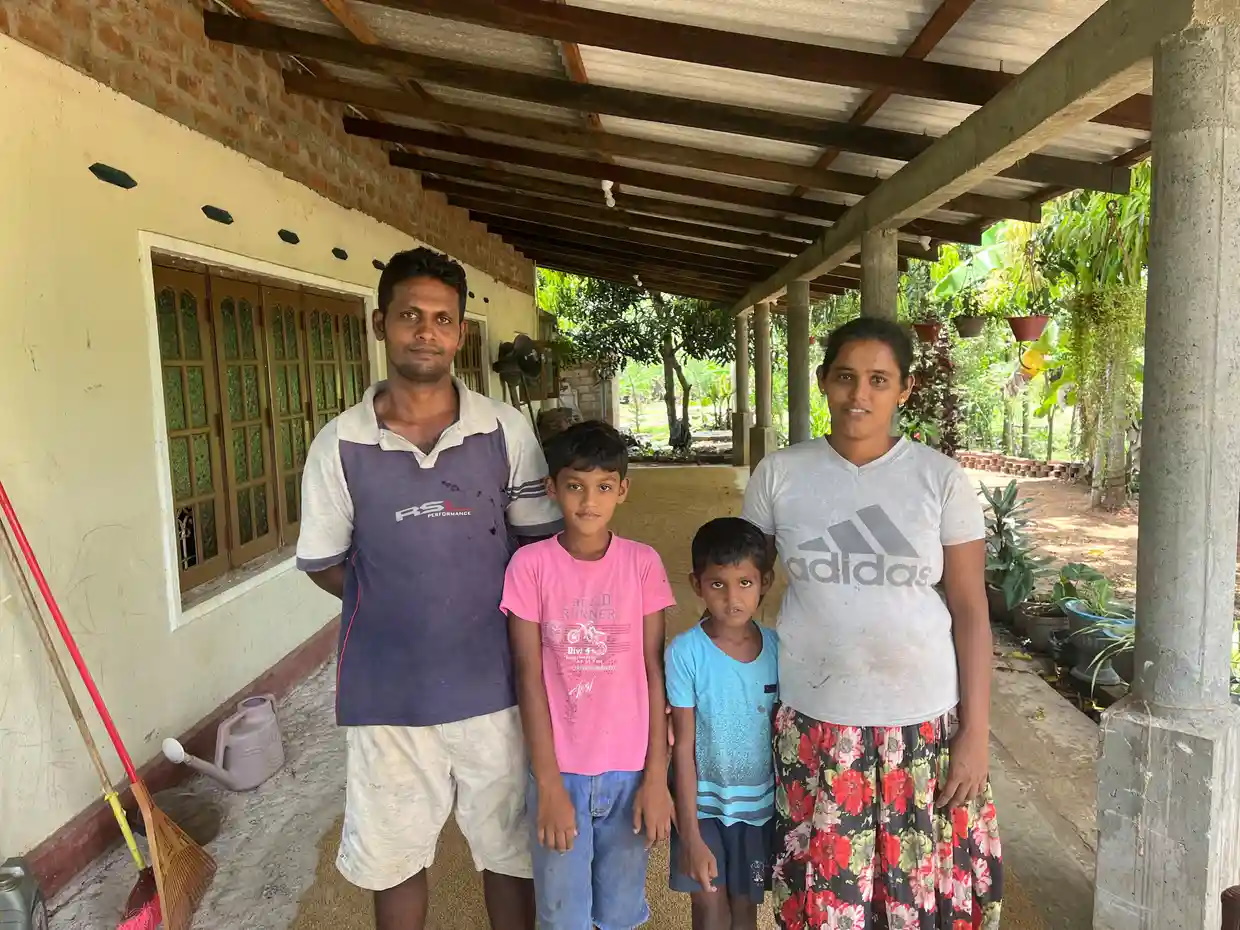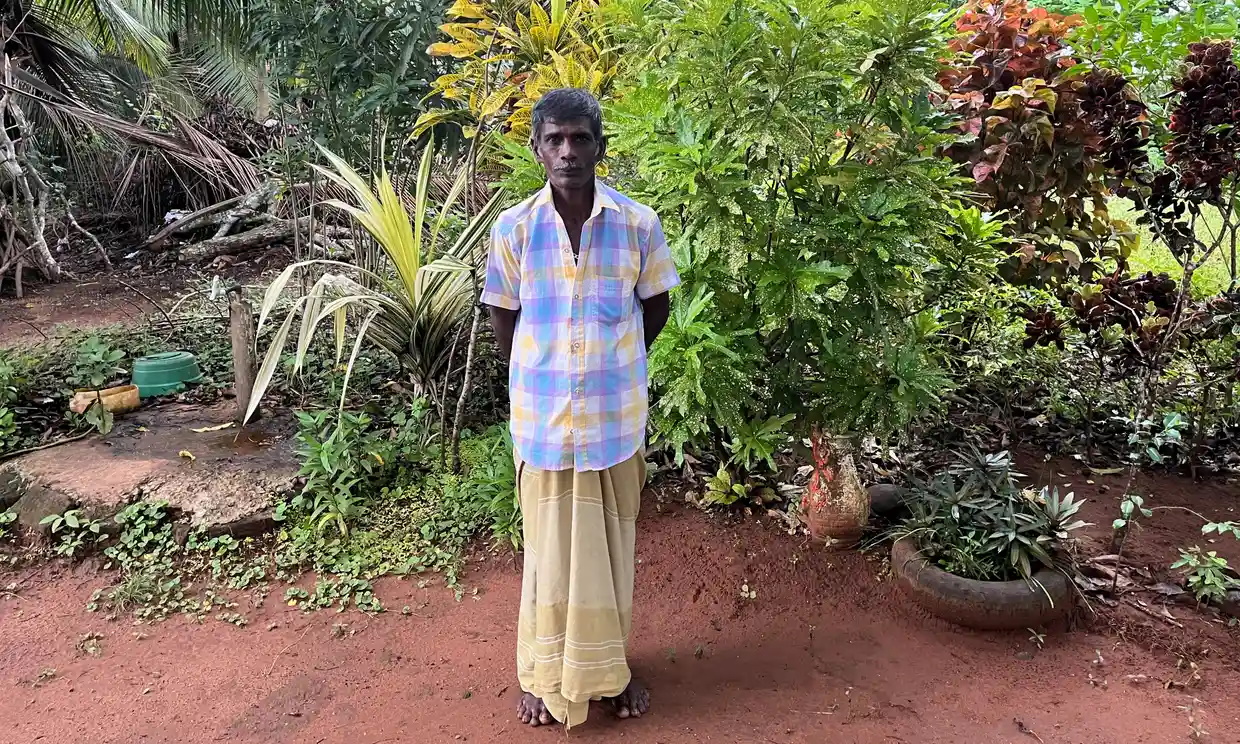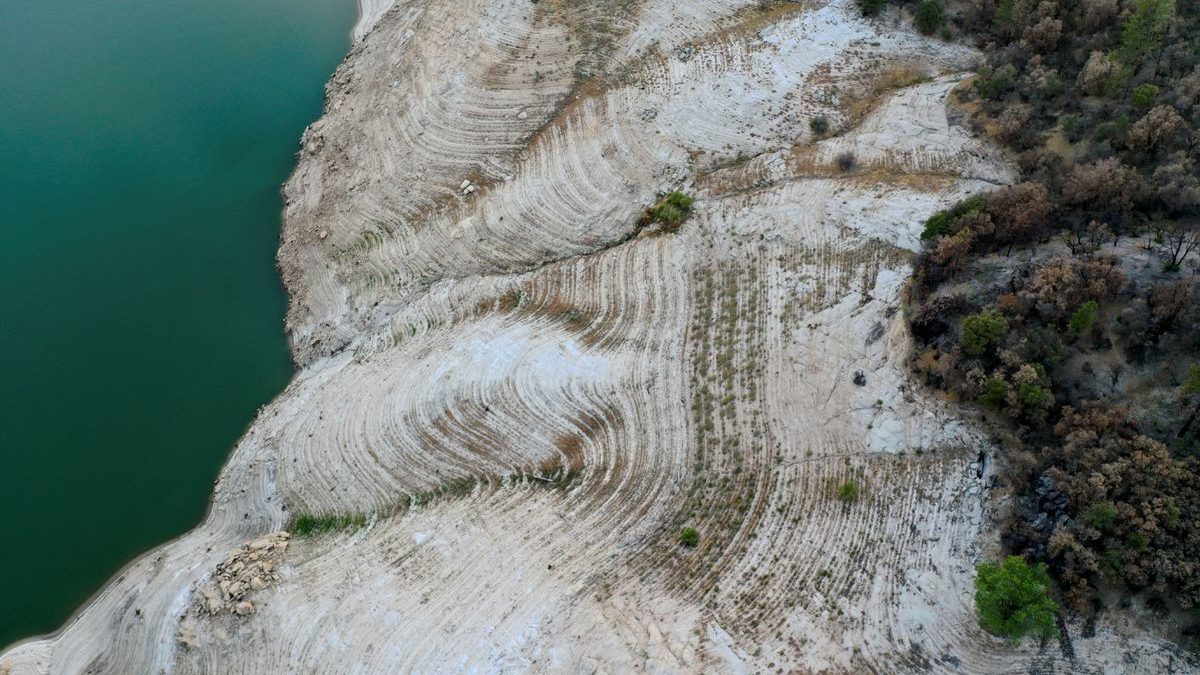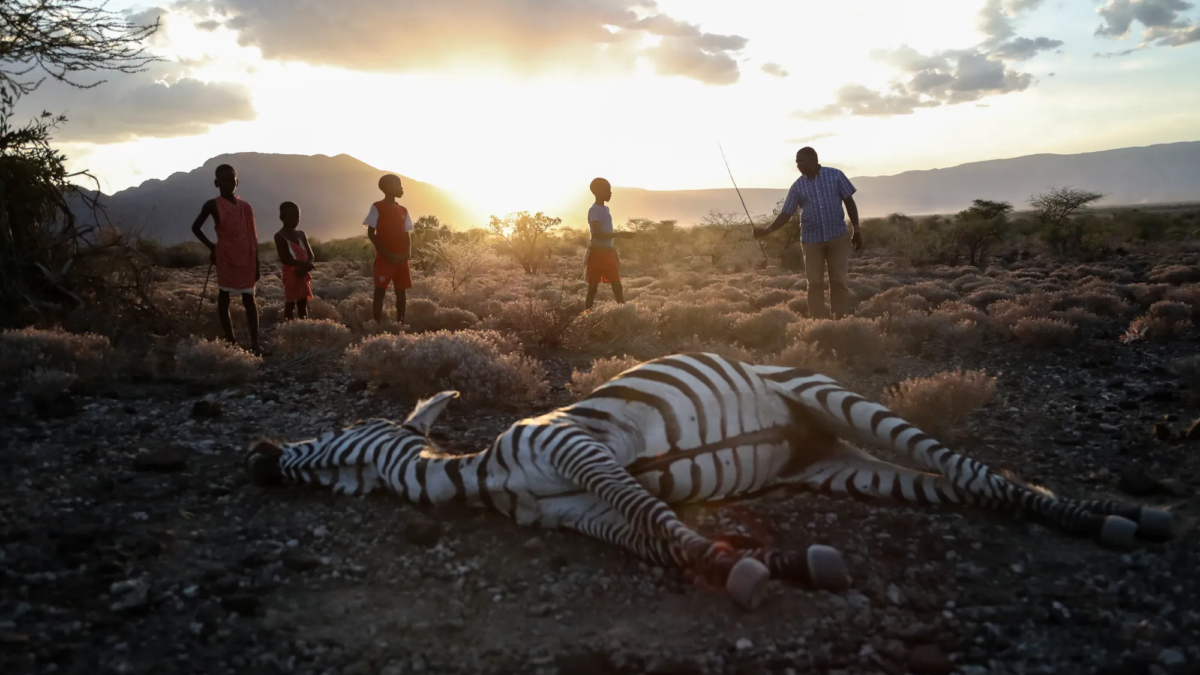Sri Lanka reels from rash fertiliser ban – “If things go on like this, in the future it will be hard to find a farmer left in Sri Lanka”

By Hannah Ellis-Petersen
20 April 2022
RAJANGANAYA, Sri Lanka (The Guardian) – Driving through the verdant landscape of Rajanganaya, a rural district in north Sri Lanka where the hibiscus flowers pop out of rich green foliage and the mango trees are already weighed down by early fruit, it is hard to imagine this is a community in crisis. Yet for many of those who have farmed this land since the 1960s, mainly with rice and banana crops, the past year has been the toughest of their lives.
“If things go on like this, in the future it will be hard to find a farmer left in Sri Lanka,” said Niluka Dilrukshi, 34, a rice paddy farmer.
Sri Lanka is grappling with the worst economic crisis since its independence in 1948, and foreign currency reserves sit at their lowest level on record due to what many see as gross economic mismanagement by the government. There is barely a citizen of this south Asian island who hasn’t felt the bite of catastrophic inflation and fuel, food and medicine shortages in recent weeks.
For the farmers of Sri Lanka, their problems began in April last year when President Gotabaya Rajapaksa, who now stands accused of pushing the country into financial ruin, implemented a sudden ban on chemical fertilisers.
The full implications of the ill-advised policy – which has now been reversed – are only just being realised. Farmers say their livelihoods are under threat and for the first time in its modern history, Sri Lanka, which usually grows rice and vegetables in abundance, could run out of food as harvests drop and the government can no longer afford the food imports the country has become overdependent on in recent years. The rice yield dropped to 2.92m tonnes in 2021-22, down from the previous year’s 3.39m, and the speaker in parliament last week warned of imminent starvation among the island’s 22 million people.
“We are a tropical country full of rice paddies and banana plantations, but because of this stupid fertiliser ban, now we don’t even have enough food to feed ourselves,” said Rajith Keerthi Tennakoon, 52, former governor of the southern province. “We have had past economic crises, security crises but never in Sri Lanka’s history have we had a food crisis.”
On the face of it, a push to organic farming would be seen as laudable, given concerns over the use of chemical fertilisers. Yet it was the sudden and obtuse manner in which the ban was introduced – imposed virtually overnight and with no prior warning or training – and the questionable motives behind it, that have left even organic farming advocates furious.
Prior to the ban, successive governments had encouraged an overdependence on chemical fertilisers by the country’s farmers, who, thanks to subsidies, would receive hundreds of kilos of fertiliser. Aside from a few select farmers, most had no idea how to successfully implement organic farming practices, and in protest many refused to farm altogether. Some believe the policy was meant to save valuable foreign dollars, others believe it was part of a more sinister agenda, following a growing intervention into the farmers’ lives by the government.

“There was no proper plan, no training or education, so it’s clear to the farmers there was an ulterior [motive] here,” said Vimukthi de Silva, an organic farmer in Rajanganaya.
“Prior to this policy, the government had unsuccessfully tried to commercialise farm land, which is the biggest commercial asset the country has. So many of us think this was another way to try and get farmers to leave their land, or to weaken the farmers’ position and enable a land grab.”
In Rajanganaya, where most farmers operate on a small scale with no more than a hectare apiece, the majority of those the Guardian spoke to reported between a 50% to 60% reduction in their crop harvest. Last week, more than 300 farmers from the area staged a protest calling for Rajapaksa to resign.
“Before the ban, this was one of the biggest markets in the country, with tonnes and tonnes of rice and vegetables,” said De Silva. “But after the ban, it became almost zero. If you talk to the rice mills, they don’t have any stock because people’s harvest dropped so much. The income of this whole community has dropped to an extremely low level.” [more]
‘It will be hard to find a farmer left’: Sri Lanka reels from rash fertiliser ban


